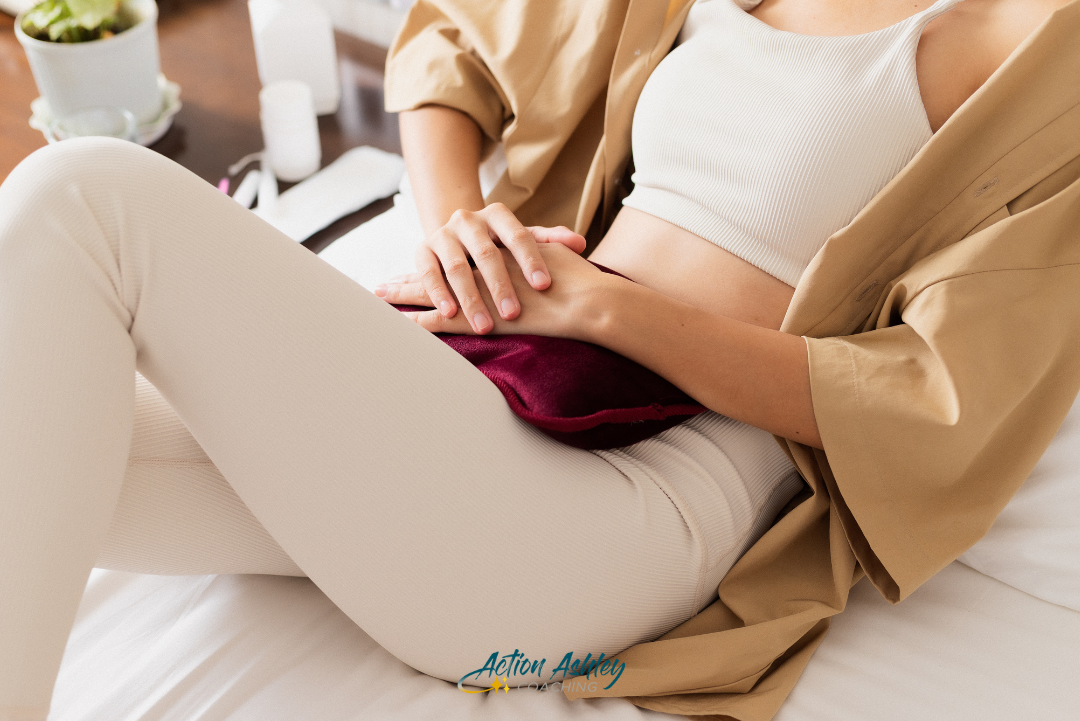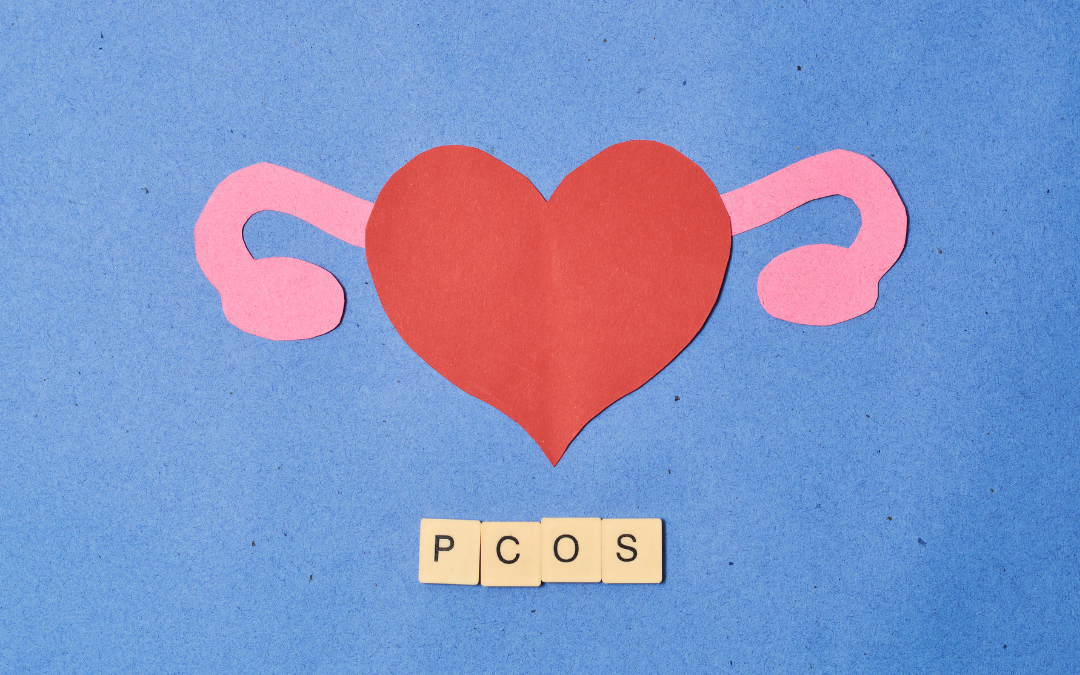It’s day 2 of your period and you are curled in a ball on your couch, desperately clinging to your heating pad and popping Advil every few hours.
Welcome, period cramps!
Most women (84%, actually) struggle with period pain, specifically menstrual cramps.
And though that statistic makes it feel like cramps are “common”, your period pain is not normal. What kind of life is it when you are bracing yourself for painful cramps that have you cancelling plans and hating your body every month? Not one that you need to deal with, my friend!
Why do you get period cramps?
Period cramps happen when your uterus contracts to shed its lining. A hormone called prostaglandins are what causes the uterus to contract. When you have higher levels of prostaglandins, you can experience more painful period cramps.
The biggest reason for higher prostaglandin levels is inflammation.
Inflammation in your body is impacted by:
- Diet
- Exercise
- Medications
- Stress
- Travel
- Illness
- And more
Though you will always have a little inflammation in your body (like after a tough workout!), there are ways to decrease your inflammation to support your prostaglandins, so you don’t have to worry about cancelling plans because your period cramps have a date with your heating pad on the couch.
How to decrease your period cramps
It’s best to be proactive when it comes to your hormonal symptoms. There are things you can do in the moment, but having tools around your cycle can make a huge impact on your cramps as well.
Enjoy magnesium-rich foods
Magnesium helps relax your muscles and your uterus is a muscle!
When you crave chocolate right before your period or during your period, that’s actually your body craving more magnesium. So eat up!
Other foods that are rich with magnesium are: avocado, spinach, black beans, almond, bananas, yogurt, salmon, and more.
One option, on top of magnesium-rich foods, that I recommend for most of my clients is taking magnesium glycinate (note: this is the one I use, I don’t get a kickback if you buy it, it’s just my favorite one) to help with your cramps. Most women are deficient in magnesium, so I’d start with 200mg daily. If you still have bad cramps, you can increase your magnesium glycinate to 300mg or 400mg a week before your period starts to help soothe your uterus.
Heat therapy
Do you ever wonder why your heating pad feels so good when you use it? Or why you turn on your car’s seat warmers in the middle of summer to help your low back cramps?
Heat therapy, baby!
When you use heat, it helps the blood flow and soothes your cramps.
Drink ginger or turmeric tea
Ginger and turmeric are anti-inflammatory spices. When you have cramps, you likely have more inflammation in your body.
Ginger and turmeric tea can help decrease your inflammation and help reduce pain for your cramps.
Another great tea to incorporate for your cramps is raspberry leaf tea. Have a cup or two per day starting a few days before your period begins and you’ll notice a huge difference.
Movement or stretching
Movement and stretching release endorphins, and endorphins acts as a natural painkiller. Meaning, movement does help your cramps.
But here’s the catch – if you do high intensity movements, you can actually spike your inflammation, causing worse cramps.
So it’s important to match your movement to your energy levels. This could be a light walk, stretching, lifting but decreasing the intensity, a light jog, or yoga. Focus on lighter intensity movements on the days your symptoms (like your cramps) are at their peak.
Tune into your body. If you get painful cramps during or after your workout, it’s a sign that you did a little too much with your workout and should scale back next time.
Reduce caffeine and sugar
Specifically, reduce caffeine and sugar the week leading up to your period. This will help with cramping, but also sleep issues and acne connected to your cycle.
To help with cramping, you may always want to decrease spicy foods and alcohol around your period as well. All of these can increase your prostaglandin-induced cramping.
We can say it how it is: cramps suck.
They impact your life for a few days a month, but they come in like a storm and take you out.
Doctors may say that they’re normal or that “everyone gets cramps”. But you don’t need to tolerate being in pain for a few days every single month. You have a lot of power to help manage your cramps so you aren’t missing out on plans or activities you want to be part of!
If you want a deeper dive into your cramps, check out my free ebook From Painful to Pain-Free Periods.
And if you want a customized approach to your hormonal symptoms (cramps included), let’s schedule a free Hormone Analysis Call to dive into what’s going on!





